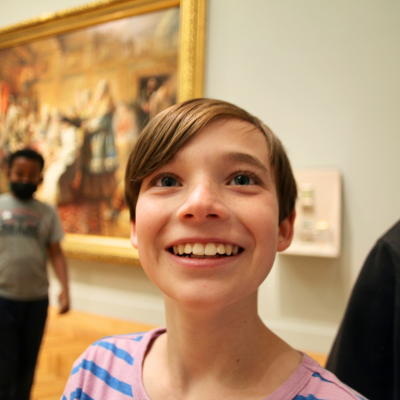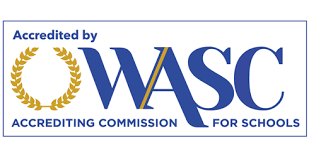Meeting the Needs of Gifted Students
Chronos Academy is designed to support and encourage gifted students so that they can learn without limits. With careful consideration to how children learn at different stages of development, we created a program to help gifted learners thrive. Our program challenges students with exciting, interdisciplinary lessons created to maximize students’ retention. We provide an environment with no upper limit to learning — Chronos students can pursue their potential as far as they can take it.
Gifted learners have specialized educational needs. In a traditional school setting, many gifted and academically-curious students become frustrated when they are forced to work at a slower pace. Students may be discouraged from asking questions or bringing their own interests into the classroom. Over time, these frustrations can lead to low self-esteem, disengagement, and behavioral problems.
Gifted students flourish in an environment where their special skills are celebrated and scaffolded. They shine in small classrooms where each student is an engaged part of their learning community and where their unique talents and interests are embraced.
Gifted students also benefit by having teachers who understand that, for some students, cognitive, emotional, and physical development is not aligned. This means that intellectual skills may be advanced while social skills are catching up. Or, they may be capable of reading far beyond their current age, while struggling in math (or vice versa).
Gifted Students Are Uniquely…
Curious
Gifted students are fascinated by things others take for granted. They ask probing questions and strive to learn about the world around them.
Precocious
Often, gifted students have a sophisticated understanding of the world around them, or may exhibit advanced skills in one or more area.
Creative
Gifted students make unexpected connections between topics and often come up with “outside the box” approaches to solving problems.
What is Giftedness?
The term giftedness encompasses a broad concept. Gifted learners show academic skill, intellectual engagement, and a desire to learn. They are likely precocious in some areas like verbal skill, math, or science. Frequently, gifted students have talents in other areas, like the arts, music, engineering, dance, or athletics.
At Chronos, we celebrate differentiated learning and make sure that our students are able to go as far as they can without being held back to the pace of other students. We understand that giftedness may be exhibited in some subjects but not others, so we make sure that students are supported to learn at their own pace.
While every student is unique, research shows that gifted students share some common characteristics and behaviors.
Common Traits of Gifted Learners
Gifted students are all unique, but they do tend to show some combination of similar traits:
A desire to learn and curiosity about learning
An extensive and detailed memory, particularly in a specific area of interest
Communication skills advanced for their age and the ability to express complex ideas and feelings
Asking creative and complex questions
The ability to identify important characteristics of new concepts and problems
Learning information quickly in an academic area of interest (language, history, mathematics, engineering, science, etc)
Using logic to arrive at common-sense answers
Is reflective about learning
Understanding abstract ideas and complex concepts
Using analogical thinking, problem solving, or reasoning
Observing relationships and sees connections
Finds and solves difficult and unusual problems
Working conscientiously and having a high degree of concentration in areas of interest
Without an appropriately engaging, rigorous and expanded curriculum, gifted children risk becoming bored, frustrated or angry, and they may begin to disengage, misbehave or act out at home or at school. Under-challenged gifted children are also denied a critical opportunity to face adversity — learn how to cope with mistakes, failure and disappointment — and develop other critical behavioral regulation skills that all young children should learn.
VICTORIA MCDOUGALD, Edsource, April 18, 2023
Challenges Faced By Gifted Students
Gifted students can face challenges in traditional classroom settings. In Marin, there are few options for students TK through 8th grade students who perform above grade level in one or more subjects. Without a path to engage these students, they may become disengaged or feel isolated from their classmates. Often, teachers do not have the resources to manage gifted students and discourage them from pursuing their gifts. Students who are in an environment where their talents and gifts cannot be nurtured, encouraged, or met in a constructive way may begin to diminish or minimize their interests, or find other identities to make the traditional classroom environment more tolerable.
Negative Effects of Unmet Needs
Feeling overlooked or misunderstood
Feeling ostracized by teachers and peers
Disruptive behavior as an outlet for frustration or boredom
Discouragement and declining self-confidence
Boredom and disengagement
Self-consciousness resulting in becoming unwilling to stand out and draw attention to their gifts
The curriculum at Chronos is designed to give our students unlimited opportunities to learn and pursue their interests. With a global, interdisciplinary curriculum, we create opportunities for students to solve problems and ask meaningful questions. We strive to develop a growth mindset, where effort is rewarded, because there is no limit to what our students can learn or achieve!
Resources
Testing & Evaluation
IQ Testing
The IQ score can be Full Scale IQ (FSIQ) or General Ability Index (GAI). A significant discrepancy between the two denotes a possible learning challenge. The tests that evaluate IQ are:
WPPSI - 2.5 to 7.25 years old
WISC - 6 to 16 years old
WIAT - 16 to 90 years old
Stanford–Binet intelligence scales
Neuropsychological Evaluations
If your child(ren) has learning challenges plus giftedness, a more in-depth assessment may be indicated. Your local school district can help! Reach out to your local school district Dir of Student Services or contact the Marin County SELPA
A neuropsychological evaluation, also called neuropsychological testing, is an in-depth assessment of skills and abilities linked to brain function. The evaluation measures such areas as attention, problem solving, memory, language, I.Q., visual-spatial skills, academic skills, and social-emotional functioning. https://childadolescentpsych.cumc.columbia.edu/articles/what-neuropsychological-evaluation,
Service Providers
CPMS’s Kalmanovitz Child Development Center
Morrissey-Compton Educational Center
Masonic Center (SF) Low-cost neuro-psych based on need
Access Institute (SF) Low-cost neuro-psych based on need
Growth Mindset Resources
Resources for Parents and Mentors
The Secret to Raising Smart Kids, Carol Dweck
Mindset Works Carol Dweck’s website
The Yes Brain: How to Cultivate Courage, Curiosity, and Resilience in Your Child, Daniel J. Siegel, Tina Payne Bryson
Khan Academy Learnstorm Growth Mindset Activities
Picture Books For Young Children
The Most Magnificent Thing, Ashley Spires
A Beautiful Oops, Barney Salzberg
Ava Twist, Scientist, Andrea Beaty
The Magical Yet, Angela DiTerlizzi
Books On Parenting and Mentoring Gifted Children
Smart Girls, Barbara Kerr
Smart Boys, Barbara Kerr
Growing Up Gifted, Barabara Clark
Living with Intensity, Susan Daniels and Michael M. Piechowski
Gifted and Distracted, Julie Skolnick
A Parent’s Guide to Gifted Children, James Webb, Janet Gore, Edward Amend, and Arlene DeVries
Emotional Intensity of Gifted Students, Christine Fonseca
Twice-Exceptional (2E) Resources
Council For Exceptional Children
Reel2E, parent support for 2E based on the peninsula
Associations/Groups
National Association for Gifted Children
California Association for the Gifted
John Hopkins Center for Talented Youth
Extracurricular/Supplemental
Young Scholars Academy, geared toward 2E learners











